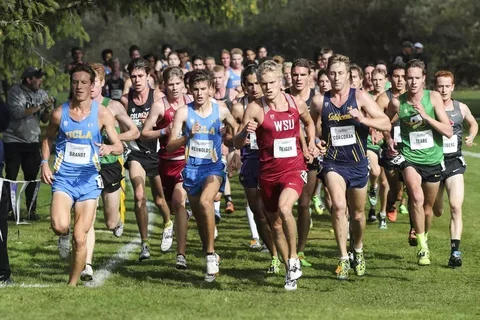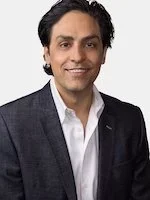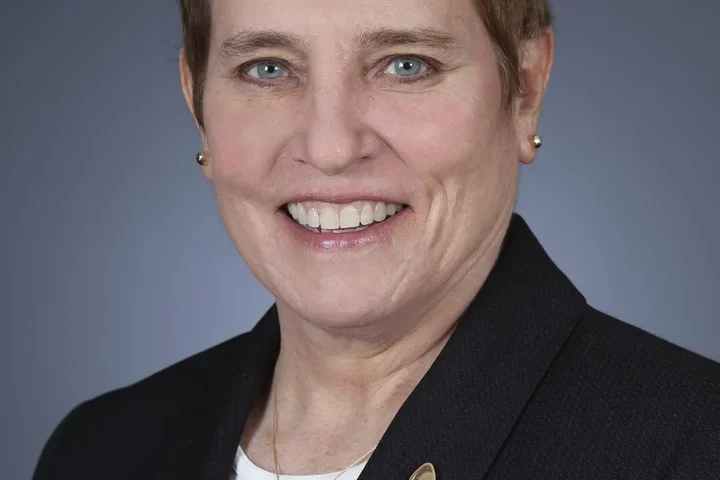Sports Cardiologist - Sports Medicine Career
Medical Expert Interview

Sports Medicine Careers
Sports medicine is an area of healthcare focused on athletes. A sports medicine practice covers myriad medical and physiological goals and concerns that can and do impact athletes.
Such an expansive goal demands a commensurate breadth of practitioners and professionals. That’s why the field of sports medicine encompasses a dynamic range of job types and career opportunities.
The article below explores sports cardiology. Additional sports medicine career roles include:
- Certified Athletic Trainer
- Orthopedic Surgeon
- Physical Therapist
- Sports Neurologist
- Sports Psychologist
- Sports Nutritionist / Registered Dietician
- Team Physician
Sports Medicine Career Overview
Header image courtesy of UCLA Athletics. Pictured: Robert Brandt and Garrett Reynolds leading during UCLA Cross Country at Pac-12 Championships. Photo by: Eric Evans Photography.
Meet Ali Nsair, MD, Sports Cardiologist at UCLA Health
Interventional cardiologist Ali Nsair, MD directs UCLA’s Health Sports Cardiology and Heart Transplantation and Mechanical Circulatory Support Programs.

A profound interest in the human heart first inspired Dr. Nsair to become a sports cardiologist.
“The human heart is a fascinating organ. Even at rest, it’s beating 60 beats every minute. That's about 2.5 million to 3.5 billion times over a lifetime, and it can never fail. Pumping through sixty thousand miles of blood vessels in our body is truly incredible,” he says.
“It has to sustain you for your entire life with zero room for failure.”
Today, Dr. Nsair is a recognized expert in managing cardiovascular disease in athletes and performing coronary and structural heart interventions.
His research interests include several concepts at the intersection of cardiology, athletics, and emerging technologies. He sees especially great potential in the constantly evolving assortment of assistive devices, such as mechanical circulatory support devices and other implantable or wearable devices.
“Some devices have allowed people to get back to an active lifestyle in a safe manner after encountering a serious issue like a heart attack,” he says.
Helping a patient with heart disease get back to an active lifestyle is something Dr. Nsair finds most rewarding about his work as a sports cardiologist.
What Does a Sports Cardiologist Do?
A cardiologist is a physician who specializes in diagnosing and treating conditions affecting the cardiovascular system, which includes the heart, veins, arteries, and capillaries. A sports cardiologist does the same thing for a niche patient population of athletes—highly active people whose hearts undergo above-average strain.
Sports cardiologists empower athletes to push their bodies toward peak performance without compromising their heart health. They achieve their goals using a complete range of diagnostic tools and intervention modalities, including advanced imaging, echocardiogram, and cardiopulmonary exercise test (CPET).
These physicians also help athletes with known cardiovascular issues responsibly, safely, and effectively participate in their sports and monitor athletes with no known issues or visible symptoms for cardiac warning signs and risk factors.
Athletes and teams count on sports cardiologists to help them understand what distinguishes a normal cardiovascular response to intense exercise from a warning sign.
What conditions do sports cardiologists handle?
Sports cardiologists can help active patients and professional athletes manage nearly any cardiovascular issue, including:
- Hypertrophic cardiomyopathy
- Myocarditis
- Congenital heart defects, such as arrhythmias or cardiomyopathy
- Valve diseases
- Heart attack
- Heart disease risk factors
- Bradycardia
How to Become a Sports Cardiologist
It typically takes over 15 years to complete the education and training required to become a sports cardiologist:
- Earn a bachelor’s degree.
- Estimated time required: 4 years
- Earn a medical degree.
- Estimated time required: 4 years
- Complete a residency in internal medicine, cardiology’s parent specialty.
- Estimated time required: 3 years
- Complete fellowship training in general cardiology.
- Estimated time required: 3 years
- Complete specialized fellowship training in sports cardiology.
- Estimated time required: 1 - 2 years
- Secure a license to practice by passing all steps of the United States Medical Licensing Examination (USMLE).
- Estimated time required: 1 - 6 months
Where can aspiring sports cardiologists find additional information about education, training, and certification?
- American College of Cardiology (ACC)
- American Board of Cardiovascular Medicine (ABCVM)
- Society for Cardiovascular Angiography & Interventions (SCAI)
- American Medical Society for Sports Medicine (AMSSM)
- Accreditation Council for Graduate Medical Education (ACGME)
Advice for Aspiring Sports Cardiologists
Dr. Nsair encourages anyone interested in pursuing a career in sports cardiology to follow that interest.
“I strongly encourage people to pursue sports cardiology. It’s a very interesting specialty to treat all patients from the weekend warriors all the way to professional athletes,” he says. “It’s fun, it’ll keep you young, and doing it allows you to have a huge impact on patients’ lives.”
Such a rewarding and fulfilling career, naturally, comes with commensurate challenges and responsibilities. Dr. Nsair advises aspiring sports cardiologists to carefully weigh the positives along with the negatives and be sure they’re ready to embrace both.
Sports cardiologists possess extensive and highly specialized knowledge and skills. Leveraging that expertise to create the best possible outcomes requires two essential character traits: Optimism and patience to get patients back to a fully active lifestyle.
“You have to be optimistic. No matter how significant the disease is, maintaining an active lifestyle is still important,” says Dr. Nsair. “As a sports cardiologist, it's your responsibility to society and to individual patients to encourage physical activity. Patients are sometimes surprised at how aggressively positive we are about getting them moving.”
Patience comes into play when managing fear, reluctance, or hesitation about following physical activity recommendations.
“For example, someone might have had a heart attack at some point and been given the inappropriate recommendation to never exercise again,” says Dr. Nsair. “It’s important to work through their fears and concerns patiently and safely get them active and engaged in their physical wellbeing.”
Working through ingrained fears and concerns takes a long time. That’s why ‘patience’ is among a sports cardiologist’s most valuable tools.
Quick Facts: Sports Cardiologists
What are the core job responsibilities of a sports cardiologist?
- Help athletes with diagnosed cardiovascular conditions, risk factors, or warning signs safely participate in their sport.
- Monitor athletes for emerging symptoms.
- Educate athletes, staff, and coaches on heart health and the warning signs of cardiac events.
Where can a sports cardiologist find employment?
Sports cardiologist may find employment opportunities in a variety of different settings, including:
- Professional athletic teams and organizations
- Olympic teams and organizations
- School athletic teams of all levels
- Academic medical centers and other research institutions
- Sports rehabilitation centers
- Sports medicine clinics
- Healthcare facilities (clinics, hospitals, and private practices)
- Medical device developers



